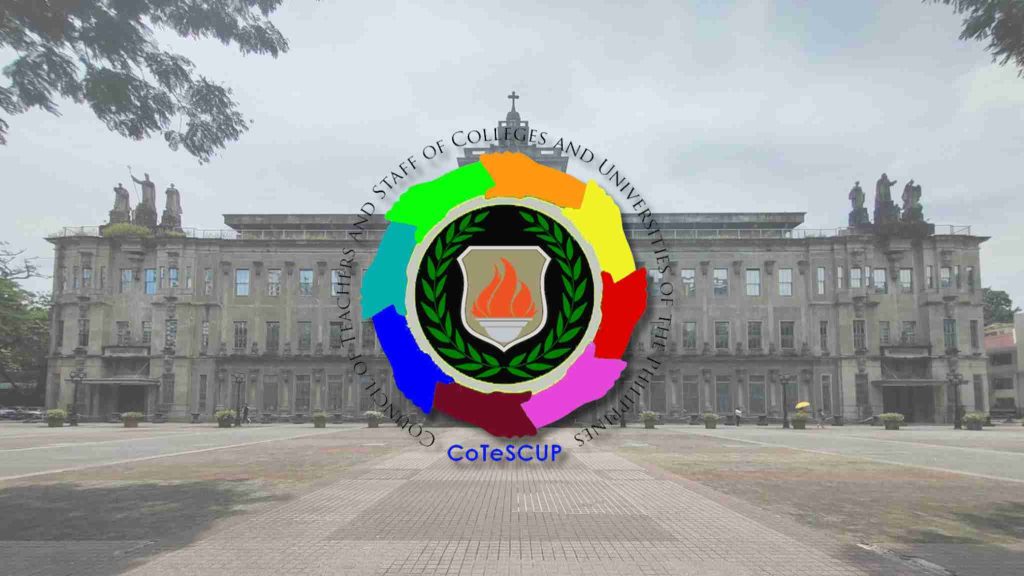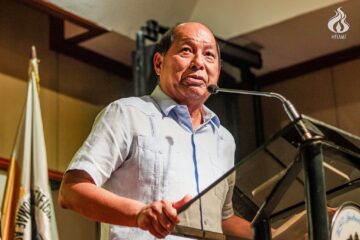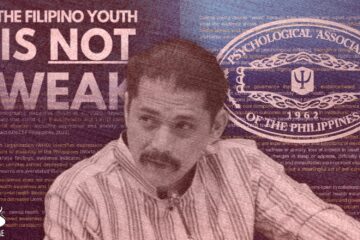
FACULTY UNIONS from several private universities have sided with UST employees’ call for a review of the Manila city ordinance requiring all academic and non-academic personnel to secure a sanitary permit or professional tax receipt (PTR), citing “discrepancies” in its implementation.
In a letter to Manila Mayor Honey Lacuna dated July 31, the Council of Teachers and Staff of Colleges and Universities of the Philippines (CoTeSCUP), a coalition of teaching unions from higher education institutions, called for “equality” in carrying out the policy, claiming that some private schools in the capital were not instructed to comply with Ordinance 8793 or the Sanitation and Disinfection Code of the City of Manila issued in 2021.
“We have noted discrepancies where some private schools in Manila do not require health permits for their employees, creating an uneven application of the ordinance,” the letter, which was signed by CoTeSCUP’s officers and board members, read.
Under the ordinance, all teaching and non-teaching employees must pay P625 to obtain a health permit, which must be renewed every year. Meanwhile, practicing professionals under government regulating bodies have the option to obtain a PTR instead.
To acquire a health certificate, employees must present a valid ID, stool and urine samples, and a filled-out drug test form and biometrics to the Manila Health Department, which is led by Lacuna’s husband Arnold “Poks” Pangan.
UST employees were given until July 31 to secure their health permit or pay for a PTR.
A document stamped by UST, the Manila Health Department and Lungsod ng Maynila, states that those who fail to follow the ordinance will be barred from accessing the University’s official online service portal MyUSTe, a sanction that was heavily criticized by Thomasian labor leaders.
CoTeSCUP said workers from other universities in Manila have expressed dismay over the policy, saying its members “feared the implementation of similar requirements.” Citing the Philippine Constitution, CoTeSCUP urged the city government to observe equality in implementing the ordinance, calling the PTR as a substitute for the health permit as “discriminatory and counterproductive.”
“The exemption for professionals with PRC [Professional Regulation Commitssion] or IBP [Integrated Bar of the Philippines], while mandating health permit for other workers, appears discriminatory and counterproductive to the ordinance’s objectives,” its letter to the mayor read.
“While professionals such as doctors and lawyers are governed by their respective boards and may adhere to different standards, the exemption for these groups must be clearly justified and harmonized with the principle of equal protection,” it added.
The labor coalition also argued that the inclusion of a drug test among the requirements for the sanitary permit does not conform to national drug laws.
“By making drug testing compulsory, the City of Manila Ordinance No. 8793 indiscriminately place every worker to drug testing. With all due respect we believe that local ordinances should align with these national regulations,” CoTeSCUP’s letter read.
Citing Republic Act 9165, or the Comprehensive Dangerous Drugs Act of 2002, the union said office workers are only mandated to undergo random drug tests based on their company’s policies and as part of collective bargaining agreements between management and labor representatives. Mandatory drug testing guidelines set by the Department of Education (DepEd) and Commission on Higher Education (CHED) primarily cover students and not university staff, the faculty groups said.
CoTeSCUP also cited the possible privacy issues that may arise from the mandatory drug testing, saying it should be “reasonable, serve a legitimate public purpose, and be the least intrusive method to achieve its objectives.”
‘Financially burdensome,’ ‘redundant’
Noting that universities already require annual health examinations for their employees, CoTeSCUP questioned the necessity of the ordinance as it was initially issued as a response to the COVID-19 pandemic.
“Many institutions already conduct comprehensive annual health examinations for their staff using adequate and often superior facilities. Therefore, an additional laboratory examination seems redundant, time-consuming, and financially burdensome,” it said.
As a compromise, CoTeSCUP urged the mayor’s office to allow its members to submit health clearances from the examinations conducted by their respective institutions instead of the Manila Health Department. The coalition also requested Lacuna to hold a dialogue with its members to determine the “most appropriate legal actions” they should take in light of their grievances.
According to the ordinance’s provisions, those who fail to comply will be slapped with a fine of not more than P3,000 for the first offense and not more than P5,000 and the revocation of the worker’s sanitary permit for the second offense.
CoTeSCUP is a labor coalition that represents teaching personnel working in Manila-based private educational institutions, namely the University of Santo Tomas Faculty Union, the Faculty Association of MAPUA Institute of Technology, the San Beda College Union, the Lyceum of the Philippines University Faculty Association, the Far Eastern University Faculty Association, Inc., the Centro Escolar University Faculty and Allied Workers Union, the St. Paul University-Manila Faculty Union and the De La Salle University Employee Association Union. F



